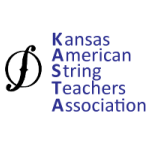
Editor, McLerran Journal
It’s a paradox that musicians must be simultaneously expressive but also completely in control of their emotions. In order to create a moving performance or lesson plan, it is necessary to reveal a small portion of one’s raw self, but too much self-expression can alienate others or even land a director in hot water. It is the daily challenge of a music educator to master the perfect balance between emoting and humble coexistence.
“There’s a good and a bad to everything;” something my mother has said to me at least one million times. Working in music education is exhilarating and provides one with the ability to express emotions in artistic and public ways. Music educators are blessed with the opportunity to help raise other people’s children and share a lifelong love of the fine arts. Because both teaching and music are so personal, however, it also means that failures are deeply felt and can quickly become overwhelming. The challenge for both music students and music educators then, is to find balance between expressing honest emotion and retaining self-control. Sherry Poteet, a Music Education Consultant and Adjunct Instructor at Kilgore College (Kilgore, TX), reminds educators that although attending competitions and having high expectations are important, “loss is inevitable” and “neither students nor teachers should put the emphasis solely on the outcome” but instead “focus on the progress.” In order to “help students accept the consequences of loss with grace and dignity,” directors should avoid harmful behaviors like blaming the failure on the students or on “changing variables such as adjudicators; how we react to loss is how we will progress in the future” (Poteet).
When an individual loses control of their emotions in a public place, it not only disrupts the social order of the specific event but can also cause permanent damage to the music program’s reputation. Educators who participate in socially unacceptable outbursts are in danger of destroying their career and losing “credibility with students, parents, and colleagues” (Poteet). In the same vein, music students who are incapable of managing their own behavior are in danger of publicly embarrassing themselves and the school. Before traveling to a contest, community event, or putting on any kind of public performance, it is imperative that educators allot a portion of class time to teaching students “skills for managing a range of emotions” and situations (Department of Health, Australian Government). By the end of their first year of study, all musicians must be able to perform with grace, but also accept praise, defeat, and speak with it. Examples of this type of training include rehearsing appropriate questions for a clinician’s visit, reviewing proper stage manners, or modeling socially acceptable reactions to contest results.
Dr. Laura Markham from Psychology Today reminds parents and educators that “setting limits on children’s behavior doesn’t mean we need to set limits on what they feel.” It is the responsibility of caregivers to “model healthy emotional self-management” in order to teach students resilience and poise (Markham). The Department of Health (Australian Government) advises that in order for children to properly “manage disappointments and frustrations,” it is necessary for educators to provide opportunities for both success and failure and also “to set limits on aggressive, unsafe, or inappropriate behaviors.” An example of this type of social training could be managing a student’s crying outburst with plain language and an escape plan; “Are you alright? Do you need to go wash your face in the restroom? Would you like to take a break in my office?” Staying calm and offering a coping method teaches the class that feelings happen and that stepping out for a few moments is allowed when they feel overwhelmed.
A seasoned educator is able to perfectly walk the tightrope of being open and personable while maintaining the air of an authority figure. “Sharing honest emotions in a professional setting,” Poteet shares, “allows the students to see [the teacher] as human” and “provides an opportunity to connect on a deeper, more personal level.” It is also necessary, as a performer, to be able to tap into that which makes us human and “elicit an emotional response from the listener” without appearing too forced or “mechanical” (Poteet). Frequently, music educators will be approached by students wanting advice on personal issues or will encounter a student who becomes suddenly overwhelmed mid-rehearsal. There must always be balance between expressions of compassion and social etiquette reminders. For example, a student having a hard time on their instrument might throw it to the floor in frustration. It would then be up to the director to address why the student is upset but also to remind them that throwing anything in a school setting is unacceptable. While connecting with students is an integral part of education, directors are cautioned not to “reveal too much of their personal lives to students” and to absolutely never blur the line between authority figure and friend; directors must keep classroom lessons, musical performances, and informal counseling sessions “professional at all times” (Poteet).
Both music educators and musicians-in-training must master the ability to evoke natural human emotions while simultaneously remaining completely in control. This self-awareness is necessary both onstage and off in order to be successful socially and professionally. While a sprinkle of legitimate emotion can elevate a musical performance or classroom experience, too much becomes off-putting and can quickly degenerate into an embarrassing situation. It is the constant struggle of a musician to find balance between authentic expression and professionalism in the workplace.
Sources
- Markham, Laura. (2013). 5 Steps to Help Kids Learn to Control Their Emotions. Psychology Today. Sussex Publishers, LLC. Web. 20 May, 2018.
- Department of Health, Australian Government. (2018). Emotional Development. Kids Matter.
- Beyond Blue. Early Childhood Australia. Web. 20 May, 2018.
- Interview with Sherry Poteet, M.MEd. Music Education Consultant and Adjunct Instructor at Kilgore College, TX. June 6, 2018.


















